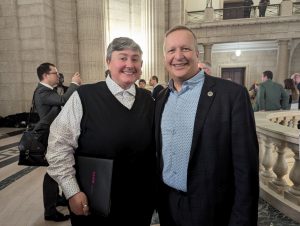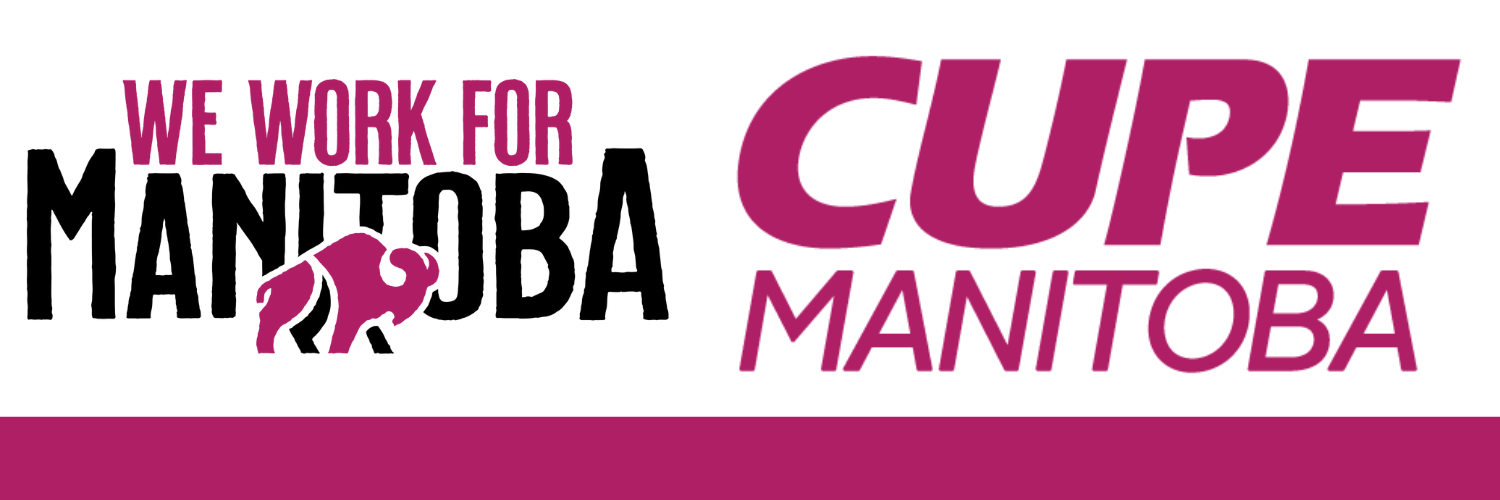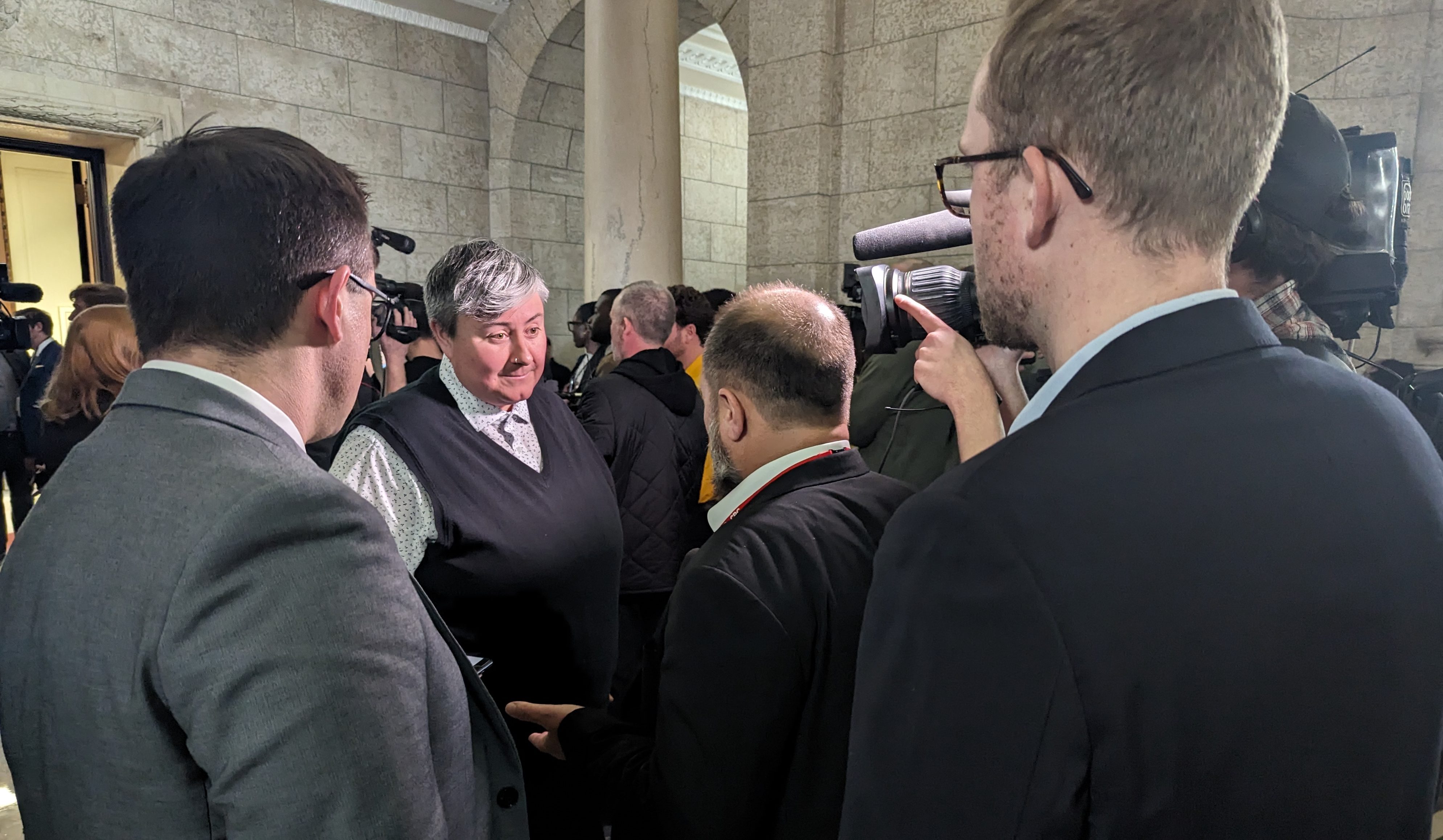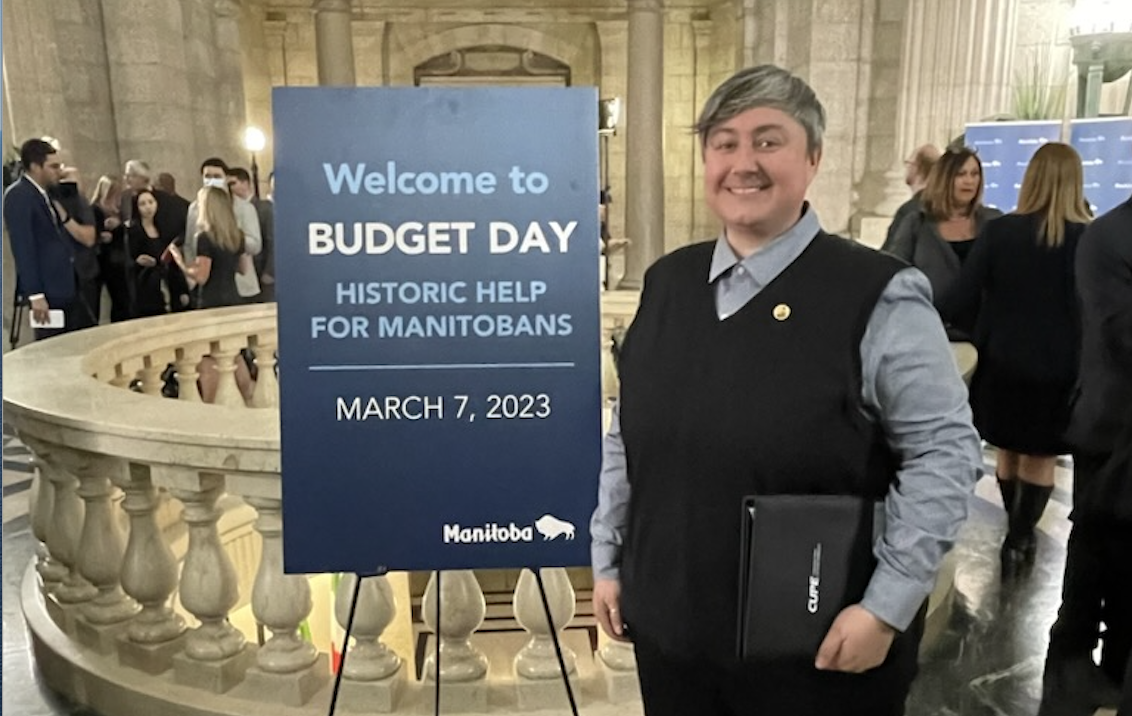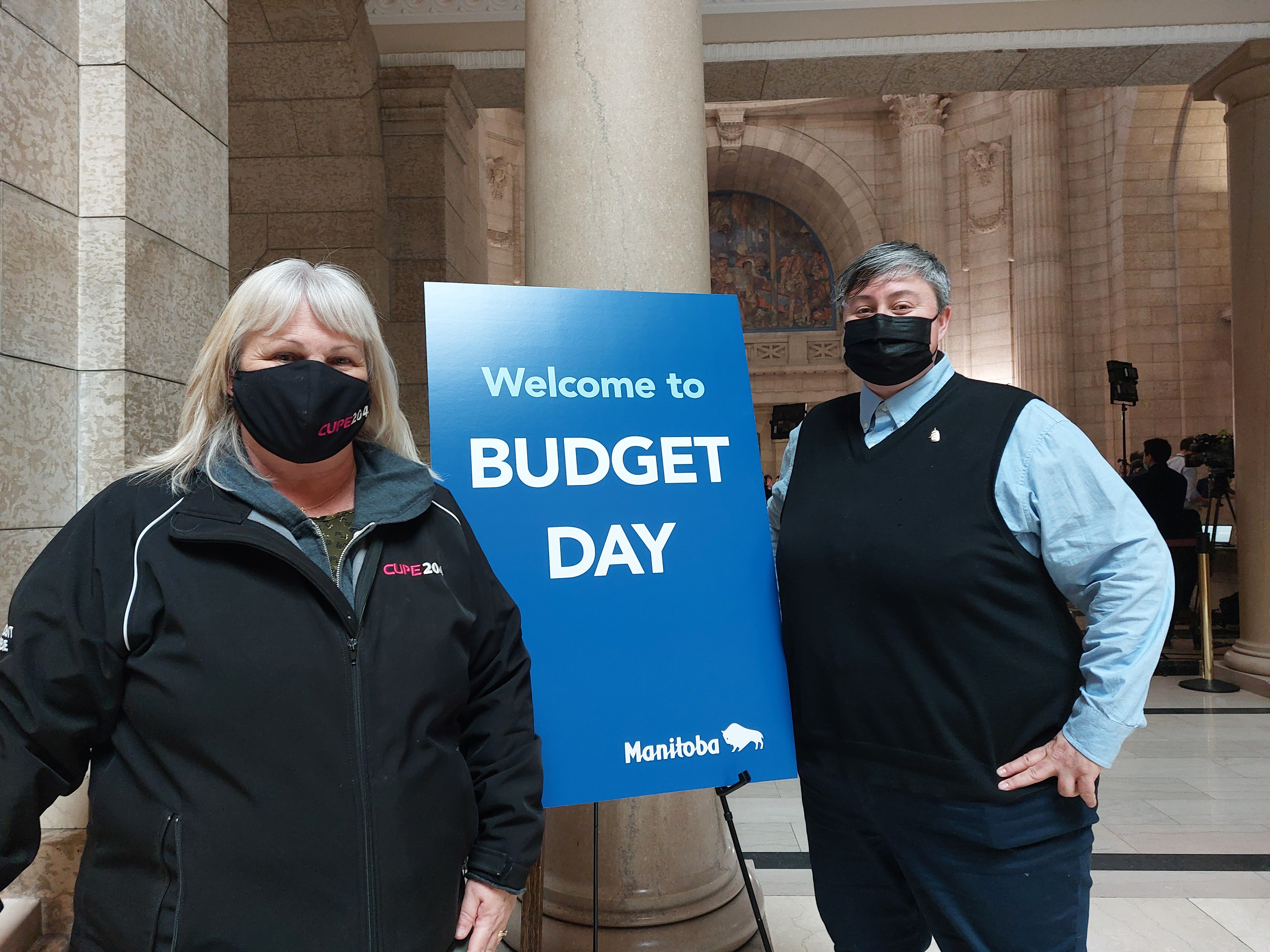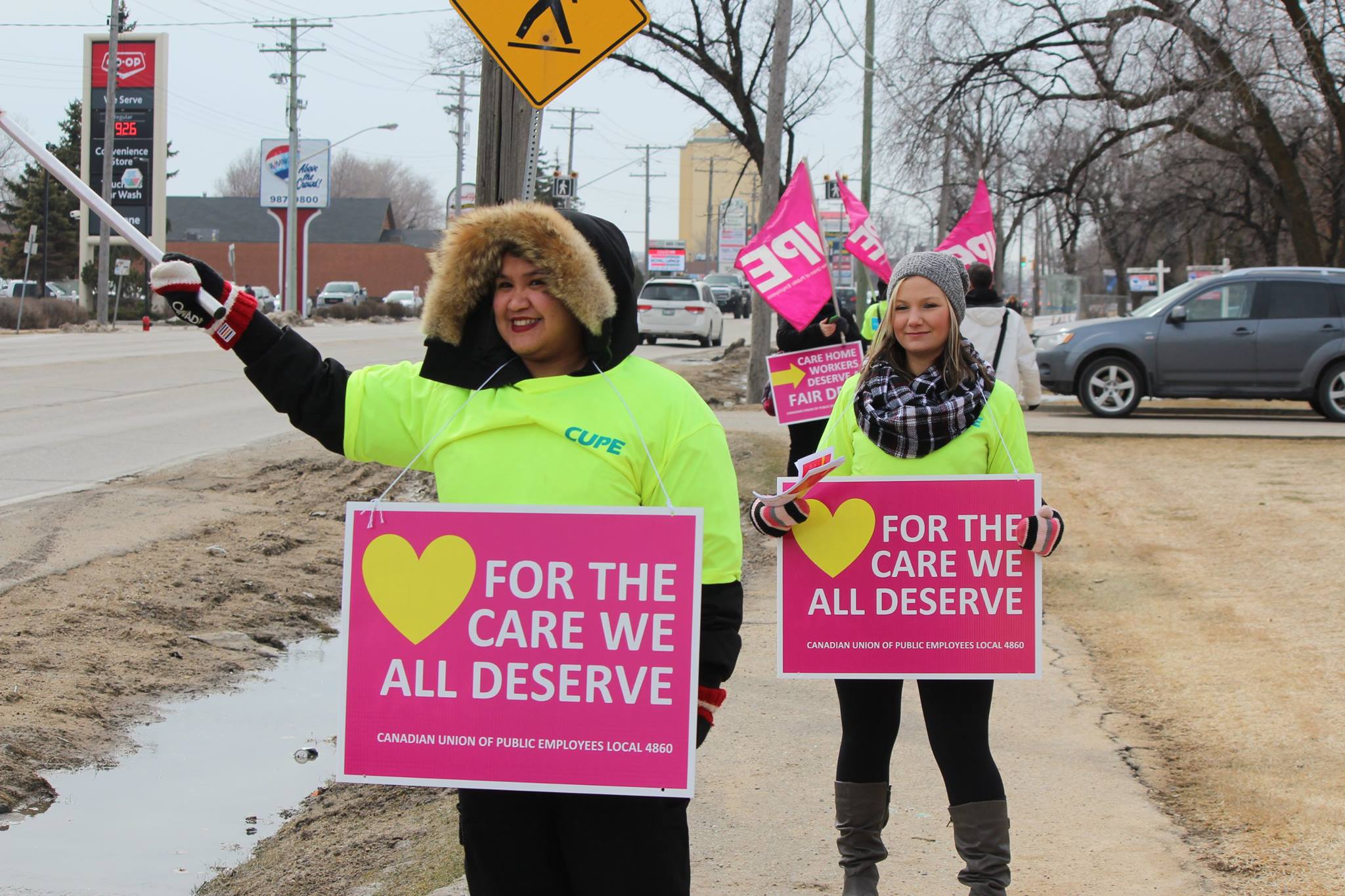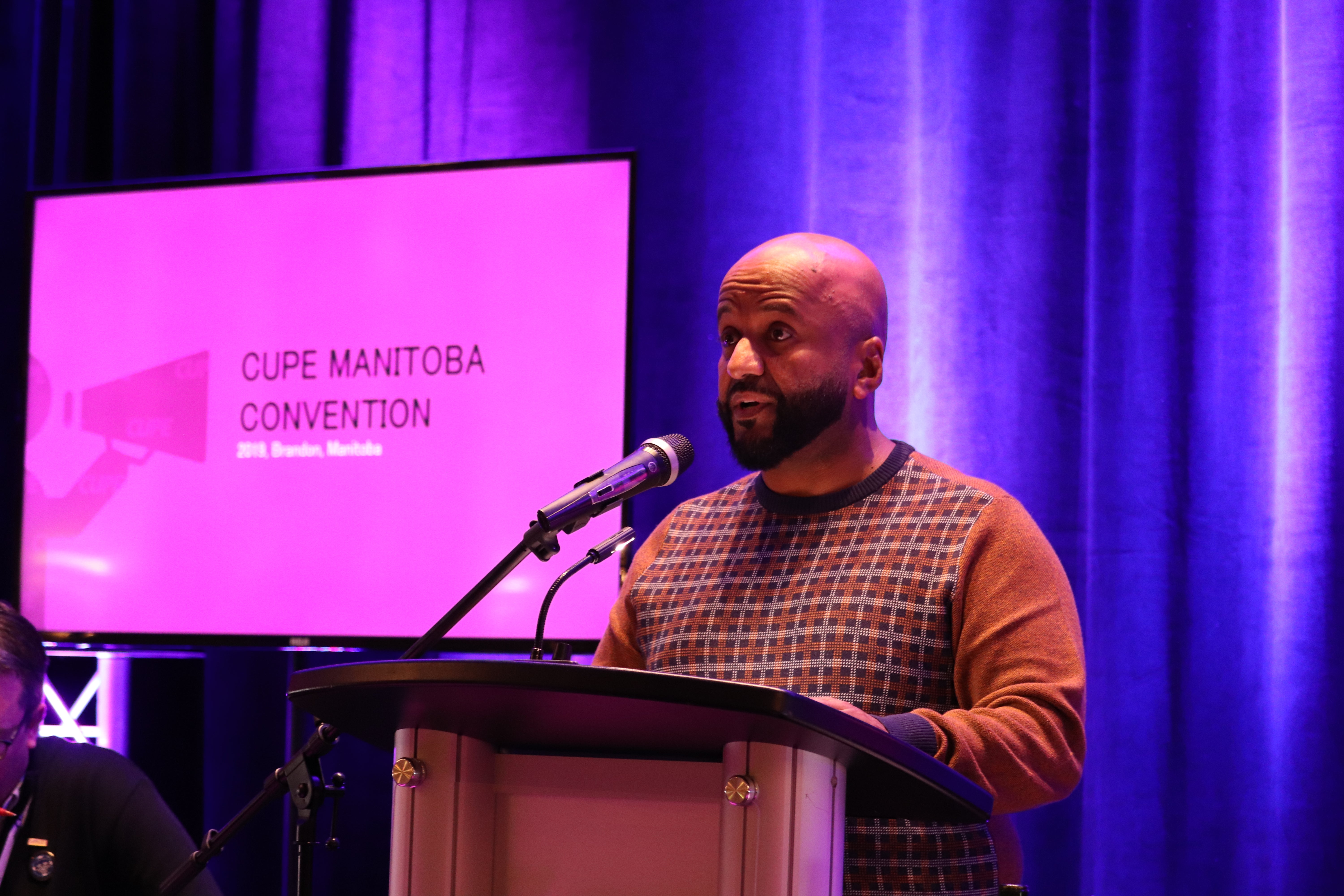Winnipeg, Treaty 1 – Manitoba’s largest union is applauding the NDP government’s first budget, which should help address chronic understaffing in healthcare, childcare, municipal services, and education.
“Hiring 600 health care aides will help fill the staffing holes created by the previous government”, said Gina McKay, President of CUPE Manitoba. “We hear every day from health care support staff across Manitoba who are calling for backup, and now the help is coming”.
The budget includes beginning new Emergency Rooms at the Victoria Hospital and in Eriksdale. The new budget also aims to address the long-standing issue of staffing shortages in long-term care.
“Increasing the direct hours of care in long term care will ensure residents get the care they need”, said McKay. “We would like to see minimum standards legislated, so facilities are legally required to ensure adequate levels of care at all times”.
CUPE Manitoba is also pleased that the two new schools planned for Winnipeg will not be using the P3 model (Public-Private Partnership) – a model that has failed elsewhere in Canada. CUPE members in Brandon mobilized against proposed P3 schools under the previous government.
“CUPE is relieved that the Minister of Education has made the right call in ensuring our new schools are fully public,” said McKay. “Public-Private Partnerships have ultimately cost taxpayers more in other jurisdictions, and we are glad this government is being fiscally prudent”.
The budget also ends the long-standing freeze on municipal funding, which should help municipalities across the provinces invest in community services. This includes new funding for a public library strategy. CUPE expects that new infrastructure projects, including wastewater treatment upgrades will not be done using the P3 model.
The NDP budget is “night and day” when compared to the previous PC government’s austerity agenda, and takes steps to address issues of social inequality in Manitoba.
“The government is moving forward on important initiatives including increased supports for disABILITY services, a safe consumption site, and taking steps on MMIWG2S+ such as searching the Prairie Green landfill,” said McKay. “This government is making it clear that they will listen to equity-seeking groups and act, we look forward to continue to be at the table”.
Highlights for CUPE members include:
Health care
- 600 health care aides hired for home care, personal care homes, hospitals, and community care.
- A new Emergency Room at the Victoria Hospital, and new Mature Women’s Centre.
- Beginning phase one of a new Emergency Room in Eriksdale.
- New personal care homes in Lac du Bonnet, Aarborg, and Winnipeg.
- New Seniors’ Advocate (CUPE has been calling for this since 2013).
- Addition of acute and lower-acuity beds in Brandon, Selkirk, ad Winnipeg.
- Institutional Safety Officers in health care settings, who are CUPE members.
- Improving medical transportation and MRI coverage for rural and Northern Manitoba.
Child Care and Education
- Increased funding for K-12 education by 3.4%.
- $3 million to help reduce class sizes in K-3.
- Two new schools in Winnipeg, which will include childcare centres.
- $20.9 million to support new child-care spaces and increase of $5 million in new provincial funding for wages for child care workers and staffing childcare spaces.
- The provincial government is not pursuing the P3 model for the new schools.
- $104.2 million in education funding, including $30 million for a universal school nutrition program.
- Expanding $10/day daycare to non-school days, including in-service days, spring and summer breaks.
Social Services and Equity
- Increase of nearly $20 million for Community Living disABILITY services.
- New supervised consumption site, addiction treatment beds, and harm reduction services.
- Searching the Prairie Green landfill for the remains of Morgan Harris, Marcedes Myran and Mashkode Bizhiki’ikwe (Buffalo Woman).
- Funding for new social and affordable housing units, and $5 million for new incentives to end chronic homelessness.
Municipalities
- Lifting the municipal funding freeze, including an increase of $51.6 million to operating grants and $7.3 million to capital grants.
- Funding for recreation including in Thompson, Brandon, and Lorette.
- $1.2 million for new public libraries funding model, including new money for rural and Northern libraries.
More information and the full budget document can be found here.
